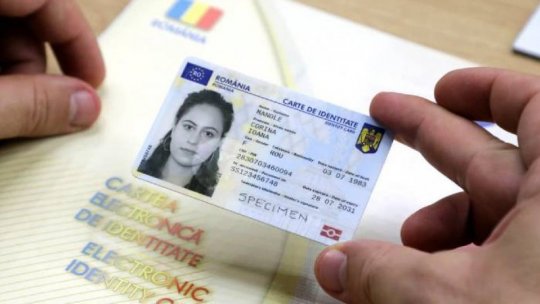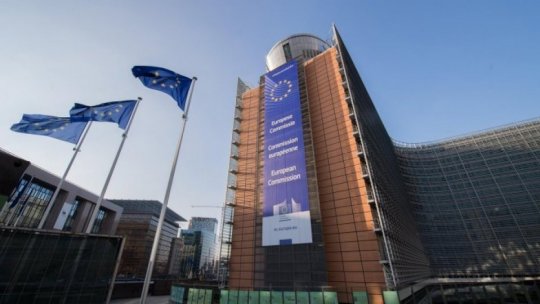The use of foreign languages by Romanians, under "EU average"
Less than half of Romanian say they can have a conversation in another language, English being the foreign language that Romanian people speak most, 31 percent, followed by French, according to a Eurobarometer.

Articol de Sorin Solomon, 24 Iunie 2012, 10:14
Over 70 percent of Romanian believes that every European should know at least one foreign language and 60 percent believe that English should be the best option.
According to a Eurobarometer survey on attitudes to multi-language, nearly half of Romanians say they can converse in another language, English being the most commonly used.
Only 20 percent of Romanian use a foreign language on holiday, compared to the European average of 50 percent, broadcasts Radio Romania Actualităţi correspondent, Carmen Valica.
According to the European Committee, although more Europeans believe that speaking a foreign language is important, aspirations are not translated into reality.
"98 percent of respondents say it would be good for their children's future that they know a foreign language. 88 percent believe speaking another language than their mother tongue is useful and 84 percent say that all Europeans should speak and a foreign language.
"Over 70 percent of Europeans believe that we should know even two foreign languages besides our mother tongue and we believe it, too. Results are therefore encouraging. But when it comes to facts, it is clear that we are working.
"Only 54 percent of Europeans say they can converse in at least one foreign language and only one quarter of them speak two languages besides their mother tongue," said Education Commissioner, Androulla Vassiliou.
English is the foreign language that most Romanians speak
For Romania, the results in this area are below the European average.
48 percent of Romanian say they can converse in another language, 22 percent say they can do this in two foreign languages.
English is the foreign language that most Romanians speak – 31 percent, followed by the French - 17 percent and German and Spanish, three percent.
The study indicates that 8 percent of Romanian citizens surveyed indicated Hungarian language as their mother tongue.
Nearly 60 percent of Romanians believe that English is the most useful foreign language and about 70 percent consider that it would be most useful for their children.
Eurobarometer also shows that only 20 percent of Romanians use a foreign language on holiday, compared to the European average, which is 50 percent.
Romanians mostly use a foreign language to watch movies or TV programs and listen to radio.
Finally, 68 percent of Romanians, compared to only 44 percent of Europeans prefer subtitled films.
Another presented study in which Romania was not included shows that over 40 percent of adolescents in 14 European countries involved are well aware of the first foreign language taught and only a quarter of them know better the-second.
"Hope is the youth"
If Eurobarometer results rank us below the European average regarding the use of languages, those involved in education believe that reality is different.
In recent years, Romanians have progressed in language learning, especially young people, say teachers who recognize however, that the Romanian education system has to make some changes, according to editor Constanţa Comănici.
Beyond the statistics and polls, it is obvious that in recent years the language learning has become important for many Romanians.
Even if in school the teaching time of foreign languages is limited, situation that actually exists in the European Union, the age at which children begin to study a foreign language has dropped to four or even three years.
There are kindergartens with exclusive program in foreign languages, most in demand being English, then German or Spanish recently.
Further, in secondary school, students study one or two foreign languages at school and increase the number of hours.
Often, the study of a foreign language is coupled with private lessons or attending courses organized by paid various companies.
Magdalena Bădicescu teaches English at Jose Marti school in Bucharest and is also part of the evaluation committees at English exams.
She says that young people’s interest to study foreign languages has increased in recent years.
"Children and adolescents are very open to foreign languages. Relevant are the results from Cambridge, also from EFTA examinations and TEOFL are exceptional in the world. Romanian students have very good results," says teacher Magdalena Bădicescu.
Daniela Pavoni leads from 2004 the representative in Romania of foreign language schools.
Specifically, the company organizes courses and summer camps in foreign schools, colleges and universities and advise them on young people to study in another country.
"From the children they send abroad, and are over 600 each summer, they have an extraordinarily good English level, and even more compared to other nations participating in educational programs at which adhere also our children at the same category of age are much lower. We had cases where there have been groups only from Romania only because their level was so high that they have had no one to combine them, "says professor Magdalena Bădicescu.
She believes, though, that within schools have to be changed some aspects.
"I think that from the desire to save something, it passed to this system with entire class and all over the world, for foreign language learning, the number of students should be to be as smallest as possible" says Professor Magdalena Bădicescu.
So, even if compared with other European countries we are not among those who often use foreign languages, concrete examples show that we step forward and that interest in foreign languages is increasing.
Translated by Alexandra-Diana Mircea
MTTLC, Bucharest University









